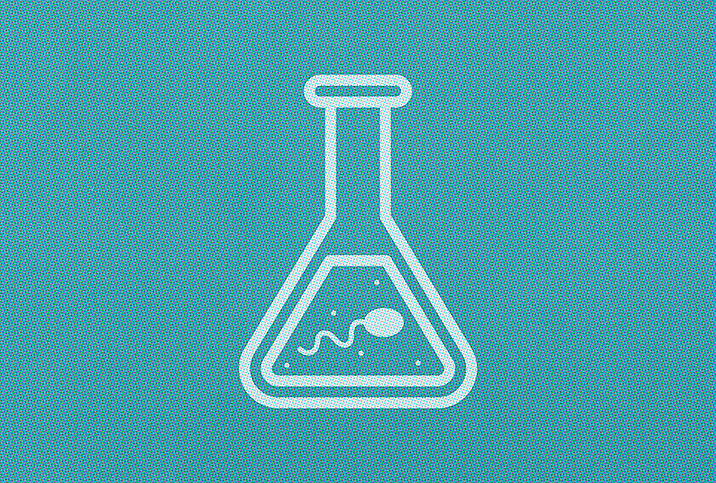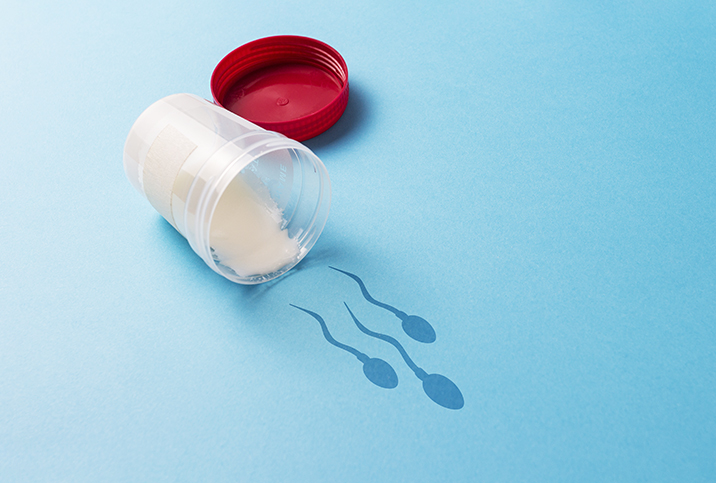What to Expect During Male Fertility Testing

It's a common misconception that fertility is solely a women's issue. On the contrary, about one-third of infertility cases are the result of male reproductive issues related to testicular function, sperm count and hormone imbalance, according to the National Institutes of Health.
If you and your partner have been unable to conceive after having unprotected sex for about a year, it might be a good time to make an appointment for a fertility evaluation. Talking about fertility issues can be a sensitive subject for some men, but it's important to understand there's no shame in it. Ultimately, identifying the problem is the first step to finding a solution—so don't waste any time.
Getting evaluated for fertility
The first step to getting a fertility evaluation is researching and choosing a reputable fertility clinic. From there, you can set up a consultation in which you will fill out a questionnaire about your lifestyle choices (such as whether you smoke or drink) as well as any health problems you have and any relevant personal and family medical history.
Your full evaluation will include a physical exam and blood tests to get your endocrine profile, which measures the levels of your sex hormones and other naturally occurring chemicals in your body that are relevant to fertility. In some cases, your doctor may recommend that you get a scrotum ultrasound to find out if there are any abnormalities in your testicles that are inhibiting sperm production or transportation. Such abnormalities may include an obstruction or an enlarged blood vessel, which can often be reversed.
You can also expect to be scheduled for one to two semen collection appointments. The samples will be sent to a lab, where a clinician will analyze your sperm count and quality. In most cases, your doctor will ask you to refrain from ejaculating in the few days leading up to the semen collection. You will be shown to a private room and given a sample container in which to ejaculate. You're free to view material on your phone to aid the process, and while policies vary from clinic to clinic, you can usually bring a spouse or partner into the private room with you to help you produce your sample. But keep in mind that the semen sample needs to remain pure and free of any saliva or lubricant, which can compromise the analysis.
Potential evaluation results
Once you've undergone the physical exam, scrotum ultrasound, blood tests and semen analyses, your doctor will schedule a follow-up appointment to discuss the results of the evaluation. If your evaluation does not show any abnormalities to your reproductive system, then your partner should consider getting tested as well.
There's also the possibility that your evaluation will reveal fertility issues. The causes of male infertility vary greatly. Sometimes, infertility is caused by correctable lifestyle factors, such as drinking excessively, using tobacco products or not maintaining a proper weight. If this is the case, then dropping the vices and adopting a healthier lifestyle with a balanced diet and regular exercise may be an effective solution.
Medical causes of male infertility include varicoceles (enlarged veins in the scrotum), benign tumors, cancer, hormone imbalances, celiac disease (an immune reaction to eating gluten), autoimmune responses, certain medications, ejaculation issues and more.
The good news is that many of the medical causes of male infertility can be effectively treated. However, some cases may be irreversible. Getting a fertility evaluation can give you and your partner the necessary information to decide how to move forward, whether that involves a sperm donor, adoption or some other option.

















